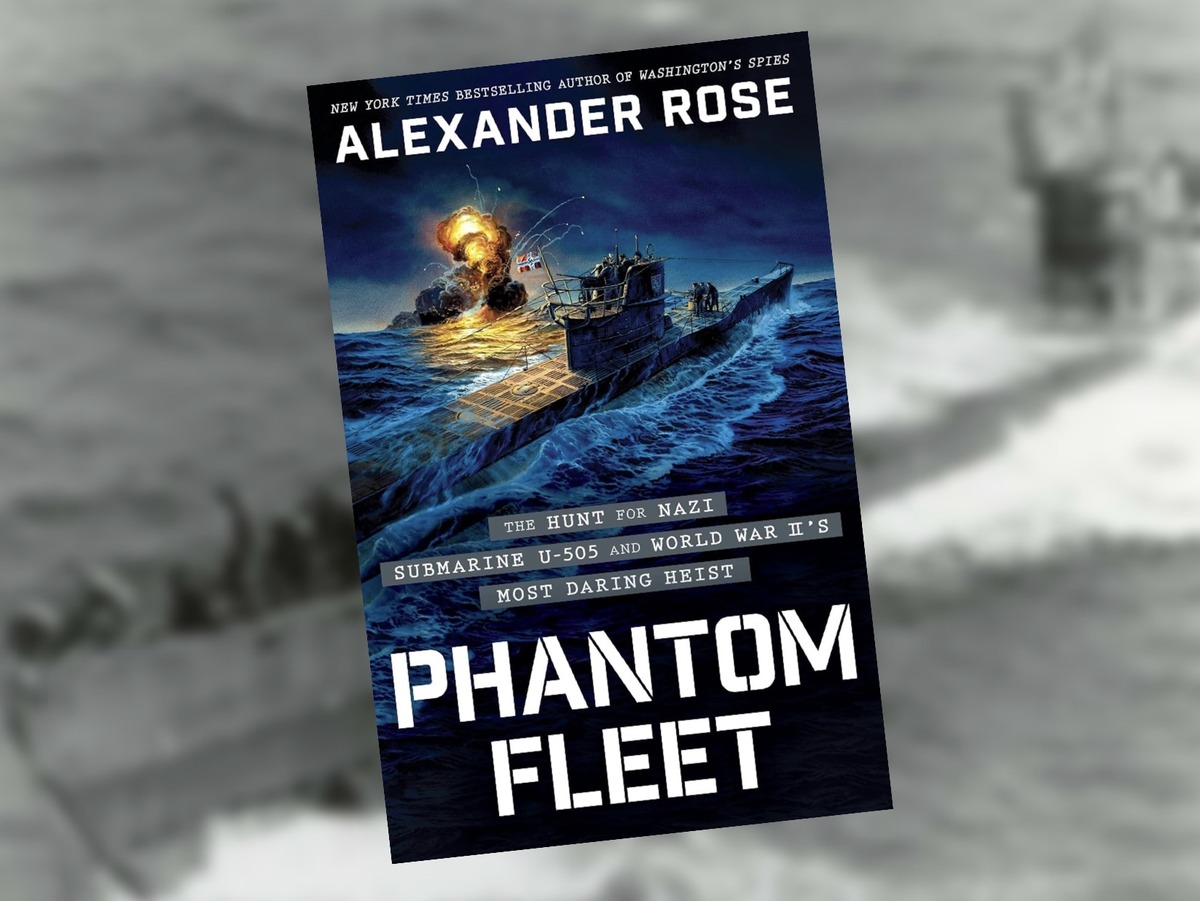This post contains affiliate links. If you click one, I may earn a commission at no cost to you. As an Amazon Associate, I earn from qualifying purchases.
Deep inside the Griffin Museum of Science and Industry in Chicago, Illinois is something rather unexpected: a World War II German U-boat. Thousands of people visit U-505’s cold, claustrophobic interiors annually and step back into the past when it and other submarines like it terrifyingly hunted the world’s oceans.

The story of how U-505, built by Deutsche Werft in Hamburg, Germany, and launched in 1941, made its way to Chicago is quite extraordinary. And that’s what Alexander Rose sets out to tell in his new book Phantom Fleet.
Per the book’s description:
In this swashbuckling adventure story, bestselling historian Alexander Rose draws on long-classified encrypted documents and intercepted German transmissions to reveal in full, for the first time, how an owlish egghead and a glory-seeking buccaneer teamed up to score the richest prize on the high seas.
Many thanks to NetGalley and Little, Brown and Company for providing an advance copy of this book to read and review.
Book Summary
In Phantom Fleet, historian Alexander Rose tells a gripping tale of espionage, technology, and high-stakes heroism during World War II. Focusing on the dramatic capture of Germany’s U-505 on June 4, 1944—just two days before D-Day—Rose paints a vivid portrait of one of the most daring naval exploits in American history.
But capturing U-505 wasn’t luck or chance. It was the result of meticulous planning by the US Navy’s mysterious Tenth Fleet and the brilliant but little-known Commander Kenneth Knowles. Behind the scenes, Knowles and his team specialized in decrypting German communications and predicting U-boat movements with uncanny, wizard-like precision and accuracy.

Captain Dan Gallery, a charismatic and daring officer with dreams of capturing a U-boat for himself, meets Knowles. Their combined efforts culminated in not only the capture of U-505—the unluckiest submarine in the entire Kriegsmarine as it happened—but also invaluable intelligence and a coveted Enigma machine.
My Thoughts
Phantom Fleet is a highly enjoyable read! It feels more like a combination of a swashbuckling adventure and a Tom Clancy spy thriller than a history book. It draws you in from start to finish and is incredibly engaging and well-written. It’s the kind of book that my grandpa, a naval aviator and captain in the US Navy Reserve, would’ve absolutely loved.
One of the most fascinating aspects of Phantom Fleet was the “biography” of U-505. This German submarine holds two remarkable distinctions. First, during her fourth war patrol, U-505 sustained the heaviest damage ever survived by a U-boat. Later, however, her luck took a turn for the worse. Her second commander, Kapitänleutnant Peter Zschech, became the only known submariner to commit suicide while submerged. U-505’s third and final commander was Oberleutnant zur See Harald Lange, a veteran officer from the Hamburg-America Line, who was a stabilizing force after Zschech’s mercurial and unstable leadership.
Also incredibly fascinating was the extent of the US Navy’s anti-submarine and codebreaking operations. The British Bletchley Park is well known for breaking the Enigma code, as well as its submarine tracking office Room 41. But less known is the American equivalent of F-21 headed by Commander Kenneth Knowles. By the time World War II ended, F-21 and Tenth Fleet far outpaced the British efforts in this field.

Then there’s the riveting story of U-505’s capture. Captain Dan Gallery wanted a submarine. And, in the US Navy’s first boarding action since the War of 1812, he got it. Standard Kriegsmarine procedure was to scuttle their vessels to prevent their falling into enemy hands. But a combination of errors—or perhaps fate—intervened and U-505’s crew was unsuccessful. This led Captain Gallery to secure an Enigma machine and its associated code books for the Americans.
Conclusion
I highly recommend Phantom Fleet! I think lovers of naval history, adventure stories, and spy thrillers will too. It’s an engaging read that takes through the Battle of the Atlantic from beginning to end and peers into a story previously shrouded in secrecy. Alexander Rose did a magnificent job in telling this story.
So if you’re in Chicago and find yourself at the Griffin Museum of Science and Industry, check out U-505. Hers is an incredible story—she went from the Kriegsmarine’s unluckiest U-boat to one of its very last survivors. She played a central role in one of the most bold and daring operations of World War II.

Leave a Reply